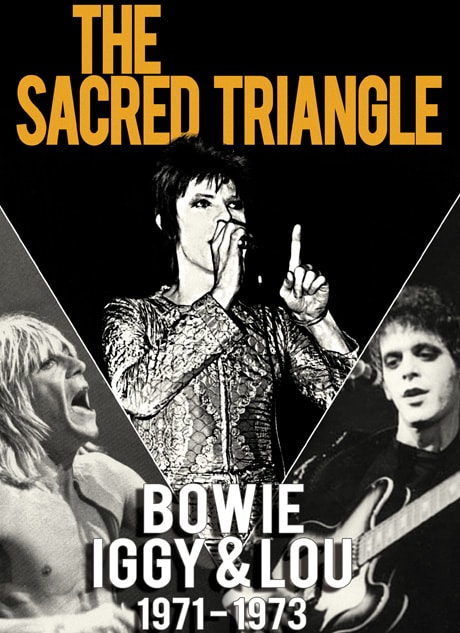Unauthorized rock bios are dodgy affairs to begin with, but one that aims to connect David Bowie, Lou Reed and Iggy Pop as the titular Sacred Triangle without actually interviewing any of the three stars is downright ludicrous. Still, the connection isn't off base: the trio were regulars at '70s NYC hang out Max's Kansas City and each used each other (as both influence and collaborator) to further their careers, with varying success. The filmmakers do a good job of setting up the three rockers' careers, demonstrating the vast influence Reed and the Velvet Underground had on Bowie and Iggy. The three records that were produced out of this collaborative process ― Lou Reed's Transformer, Iggy and the Stooges Raw Power and David Bowie's Ziggy Stardust ― are undisputed classics that signalled a way forward for an underground scene that would eventually become the punk movement. But friends, critics and hangers on can wax poetic all they like about the details and effects of the trio's friendship and their collaborative process (Angie Bowie, David's ex-wife, is the only one who offers a true look behind the curtain). But stretched out to over 97 minutes, this gets tiring and will leave viewers unsatisfied. A seven-minute bonus feature on Nico only complicates matters further. When supplied with so much information, it's only natural to want to hear it from the horse's mouth, which only magnifies their absence from the conversation. The Sacred Triangle is certainly not a bad film ― any fan of these musicians will enjoy its insider view of one of the most fruitful musical collaborations in history. But its flaws and how to improve them ― no matter how difficult it would be to get Reed, Iggy and Bowie on camera and say substantive things about this period ― are just too obvious to ignore.
(Sexy Intellectual)The Sacred Triangle: Bowie, Iggy and Lou 1971-1973

BY Ian GormelyPublished Nov 11, 2010